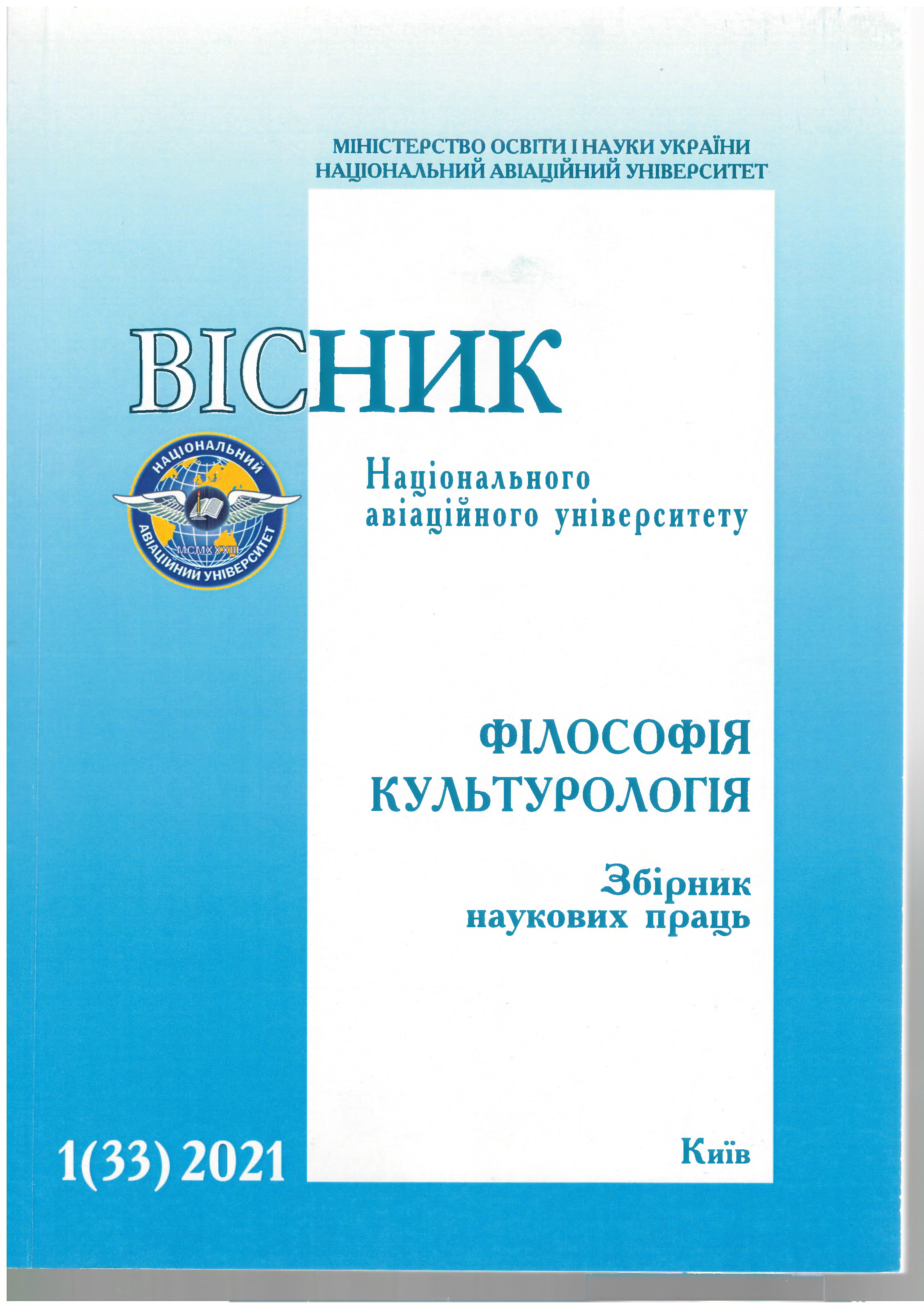CONTENTS OF "CINEMAТIC MADNESS" EVENT
DOI:
https://doi.org/10.18372/2412-2157.33.15654Keywords:
event, cinematic madness, empathy, coexistence, metaphysical bridgeAbstract
Introduction. "Cinematic madness"is foremost a certain trick for some public, a personal challenge, a transfer of topical issues to the cinematicspace. And accordingly, it will be an event only if it can realize the manifestations of events and recreate the so-called "metaphysicalbridge" with a viewer. Theaim is to reveal the meaning of the concept of "cinematic madness" in the status of the event: the interpretation of the main characteristics of the event and the compliance of these criteria in the madness depicted by cinema. The tasks are to analyze the features and specifics of the interpretation of the event by modern thinkers and intellectuals; to reveal the main meanings of the event; to identify the characteristics of cinematic madness in the status of the event. Research methods used in the study are the analysis and interpretation ones. Research results: First of all, the study defines the boundaries of the concept of an event and, its main criteria, thanks to which we can fix the event as coexistence in being endowed with participation. As an illustration and clarity of events and eventfulness, the article uses visual content, namely cinematography with its attempts to overcome the banal visualization of madness, and the tradition of the “cinematic madness” of eventfulness.As for the latter, we are talking about the various incarnations of insanity that the visual sphere offers and in which insanity as an event is possible. The real event is always unique: being deprived of any evaluation, it happens regardless of desire. Avoiding everything false, it independently outlines the trajectory of its movement.An example of such a division can be "cinematic madness", or the so-called image of a madman / madness in cinema.This is exactly the example of the image of madness, it can be seen, because it shared just then and where the viewer gives certain meanings approached the lower being. Or we can explain it in such a way that the director managed (perhaps even unconsciously) to capture the very existence by camera. Discussion. In general, the issue
of substantiation of the event in modern philosophy can be found in works of J. Deleuze, S. Zyzek, A. Badiou, J.-L. Nancy et al. In the nondescriptive state, the event is impossible, because certain signs of it indicate that the reduction of the event to a single center and core makes it impossible for it to be unique, original, and, accordingly, to have it in existence. In the purest and least sense, an event is something shocking, extraordinary, that happens suddenly and interrupts the normal course of things, appearing out of nowhere, for no apparent reason. The event has no structure, because the novelty undermines the stability of the scheme, the structure of the event. Conclusion. The main significant characteristic of the event of cinematic madness is the visual picture, which corresponds to all the indicators of the event itself and which is permeated by the barely perceptible and barely perceptible meaning.
References
Aster, Ari. (2019), Midsommar. https://www.imdb.com/title/tt8772262/
Bondarchuk F., (2020), Psycho. https://www.imdb.com/titlett12827674/?ref_=fn_al_tt_1
Eggers, Robert (2019), The Lighthouse. https://www.imdb.com/title/tt7984734/?ref_=fn_al_tt_1
Louis C.K., (2015), Louie.https://www.imdb.com/title/tt1492966/?ref_=fn_al_tt_1
Trier, von L., (1999), Idioterne. https://www.imdb.com/title/tt0154421/?ref_=fn_al_tt_1
Бадью А. Единица делится надвое // Синий диван. М.:Три квадрата, 2004. – № 5. – С. 76 - 82.
Богомолов К. Похищение Европы 2.0. Манифест ре-жиссера // https://novayagazeta.ru/articles/2021/02/10/89120
Делез Ж. Гваттари, Феликс. Что такое философия?[пер. С. Н. Зенкина]. СПб. : Алетейя. – 1998. – С. 7-86.
Делез Ж. Логика смысла. – Екатеринбург, 1998. – 480 с.
Жижек С. Событие. Философское путешествие поконцепту. Перевод с английского Д. Хамис. – М.: Рипол-Классик, 2018. – 240 с.
Лавкрафт Г. Хребты Безумия. – СПб: Иностранная ли-тература, 2014. – 608 с.
Нанси Ж.-Л. Неожиданность события / Ж.-Л. Нанси //Бытие единичное множественное. – Мн: Логвинов, 2004. – 272 с.
Свирский Я. Смысл события (на фрактальной кромкебезумия). / Событие и смысл (Синергетический опыт языка). – М.: ИФРАН, 1999. – С.173-201.
Триер фон Л., (1999), Маніфест «Догма-95» //https://officiel-online.com/lifestyle-2/art/dogma-95-story/
Фуко М. Лики безумия // М. Фуко / История безумия вклассическую эпоху. – М.: АСТ: АСТ МОСКВА, 2010. – 698 с.


